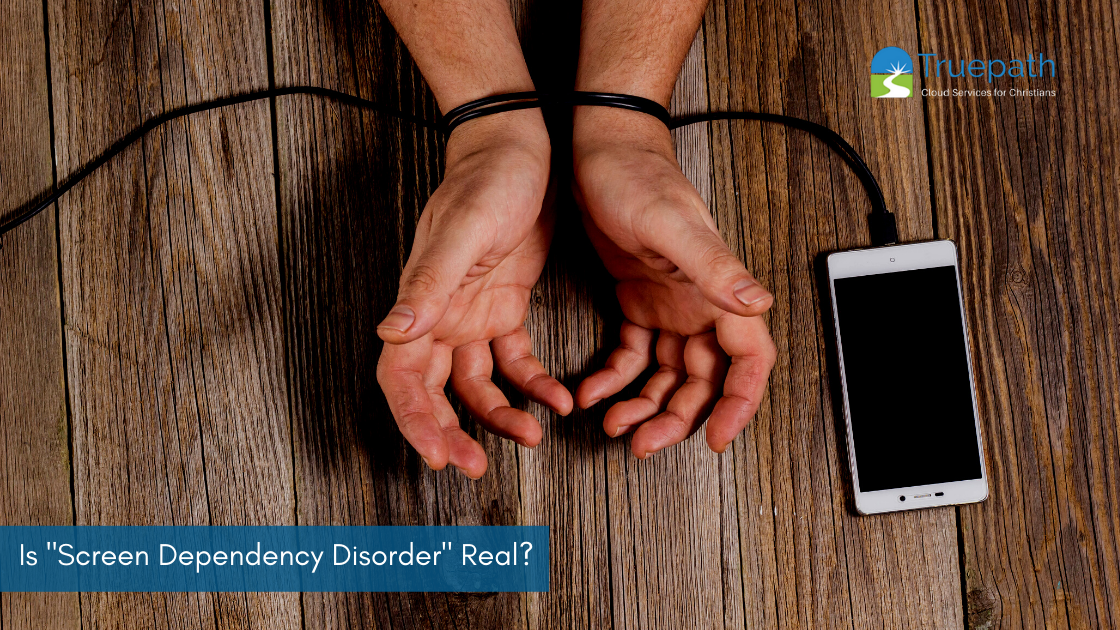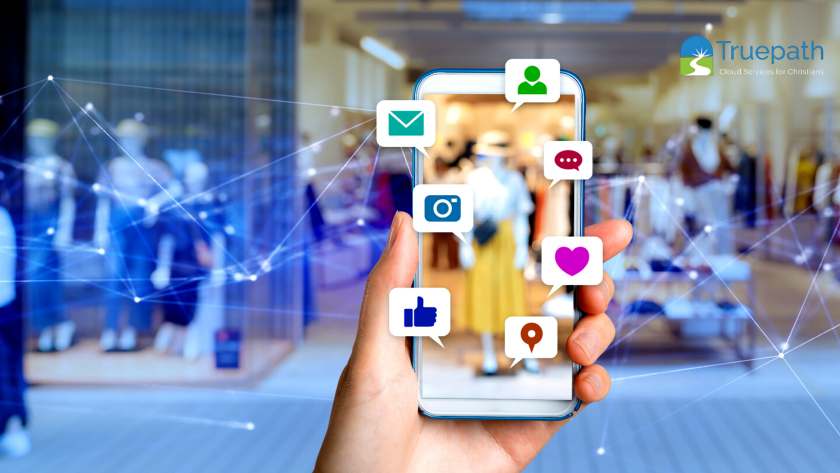Addicted to Screens? There’s a Deeper Issue.
We tend to have some misconceptions about idols. It’s a strange word, to begin with – apart from the “American Idol” world, perhaps – conjuring images of carved or metal statues from pagan religions.
Not something we have a problem with, right?
But might there be more to it than that? Tim Keller helpfully says that when we look at the essence of an idol, it’s really,
“…anything that absorbs your heart and imagination more than God, anything you seek [in order] to give you what only God can give. Unfortunately, Christians I’ve talked to often can’t distinguish between a really strong desire for something good and an idol.”
In other words, the issue of idols is really an issue about our hearts.
Further, notice that it’s usually good things that can become our idols – which is why it can be tricky. You can make an idol out of your kids, a love relationship, a job or career, anything.
Let’s take two more examples.
1. We know that God calls himself “our righteousness” ( Jer. 23:6; 2 Cor. 5:21) – a title that should be central to our faith. For Christians, it means our acceptance is actually a person (Jesus), and not our own ability to keep the law.
Yet if we pride ourselves on having the “right moral code” – the proper mix of behaviors (including the right causes, politics, etc.) that we believe everyone else should also have (if they just had any sense) then we’ve made an idol out of good morality and behavior.
Which means, it’s possible to make an idol out of our own “rightness” and call it the “Christian things to do.”
This is significant, and it’s a major theme in Scripture. It’s the lesson Jonah was slow to learn – but glimpsed – when he said “Salvation is of the Lord” (2:9).
For us, it happens when we essentially use the law (or some version of it) then to justify ourselves – instead of pointing to Jesus alone, and resting in him (Rom. 10:3). This will inevitably lead us to look down on others, in order to justify and puff ourselves up (Rom. 3:27).
2. Or, take the common experience of general anxiety. Acknowledging that we should always address our physical needs (medicines, proper diet, etc), we know that God is “our refuge and strength, and an ever-present help in trouble” (Ps. 46).
As such, we are told “do not worry,” precisely because our good God cares for us even more than the birds of the air that he feeds (Mt. 6:25-27).
So when our hearts fill with anxiety (as they often do), instead of “casting our cares upon him, because he cares for you” (1 Pet. 5:7) we turn instead to escapism and the dopamine rush of scrolling our phones to keep us happy and stimulated, then we’ve made a functional idol out of trusting technology and entertainment (otherwise good things) instead of God.
Those are just two examples of how our hearts can make a good thing into an ultimate. There are many applications (family, country/nationalism, race, etc.). For a more in-depth understanding, check out this article by David Powlison, who was influential on Keller’s thinking and his book Counterfeit Gods.
How’s Your Heart?
How does this apply then to the issue of “screens?” In keeping with our previous post, Is Technology Good or Evil? we can affirm what one doctor writes (and though his focus is especially on children, it applies to us all):
Devices or gadgets are not bad per se. They are useful and essential tools for communication, research, learning, entertainment, among other things,” says Dr. Avelino-Tandoc. “Parents are dealing with 21st-century learners, what we call ‘digital natives.’ They should allow their kids to manipulate these tools. However, balance is the key word.”
We agree – and not just because we’re a technology company.
While “Screen Dependency Disorder” (the recent clinical name for what is essentially making an idol of screens) may give us some helpful descriptors with insights into the serious health and social/relational concerns that can occur (as with any addiction), we must dig deeper.
SDD has become a widespread problem – the idol of choice for many – yet the descriptors fall short in identifying root causes. As such, we’ll likely not get to the right remedy.
The deeper issue, (as John Calvin rightly observed), is that we have “idol factory hearts.” This is true of believer and unbeliever alike.
Note: It doesn’t mean we don’t long for good things; most of us aren’t sitting around plotting how we can do evil. It’s just that we often look for good things to be more than they were meant to be.
We tend to turn good gifts into gods.
But there’s good news! If we learn to correctly diagnose our idol-making human heart, then can we apply the right cure. Repentance (turning from “God-replacements”) to the true God can then be a daily dynamic in our lives.
So let’s ask: how do we know if we’re making an idol out of media consumption and screens?
We can begin by examining our desires, and the things we long for. We can ask questions like, “Do I use the television or tablet for rescue when anxious or depressed?” “Am I looking to Facebook or Instagram for my deepest validation and approval?” “Do I possibly use my website to provide a “glittering image,” making an idol of my church or ministry?
What We Need Most
We hope it’s abundantly clear that addiction to screens is by no means a problem for the young only; it’s easy to find many adults (sometimes ourselves included?) constantly plugged in or glued to a screen.
(Parents who have made it their kid’s greatest problem may be helped by a piece entitled Social Media Isn’t Your Teen’s Biggest Problem, by Kristen Hatton. She does a great job pointing out that amidst a plethora of social problems – from drug use and perfectionism to depression and eating disorders – social media and smartphones aren’t the foundational issue).
The remedy comes, as Kristen notes, when we “peel our eyes away from self and look full into the face of the One whose work in our place was perfect. Our soul will feel its worth only when we see Jesus for who he is—and who he is for us.”
In conclusion, it’s true that social media and media consumption are indeed revolutionizing our lives. But the answer is not to label communication tools as “evil” or to become moralistic about their use, but to address the root desires that affect what we’re really looking for when we click the “on” button.
In a world where we all have “selfie hearts,” may this deeper diagnosis lead us to a place of greater freedom, self-forgetfulness, and grateful service.


